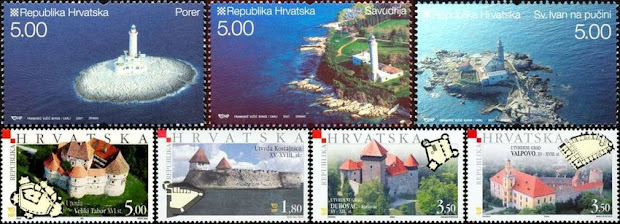Many Balkan countries are in trouble after Russia cut the gas supply to Ukraine. I saw reports from Sarajevo, Serbia, Bulgaria - places colder than Croatia and without gas. The premier of the Federation of Bosnia and Herzegovina, Nedžad Branković, has sent a letter to Gazprom, saying that the current situation in Sarajevo reminds of the war period 1992-1995. He strongly urged Gazprom to resume the supply of gas.
Tonight the temperature in Zagreb could go as low as -11 degrees. I was surprised (and happy) to learn that the situation in Croatia is much less alarming than in Serbia or Bosnia. Croatia has gas reserves that can keep us warm for three weeks, i.e. the 600.000 households that depend on gas.
 Currently, Croatia imports forty percent of its gas, I learned from the website of Plinacro, the company that deals with gas affairs. By 2030 that figure will have rises to 87 percent. I guess that means Croatia's gas reserves are almost depleted.
Currently, Croatia imports forty percent of its gas, I learned from the website of Plinacro, the company that deals with gas affairs. By 2030 that figure will have rises to 87 percent. I guess that means Croatia's gas reserves are almost depleted.
If the Russians don't give in soon, we will be "u banani". Being "in bananas" is a Croatian expression for being in trouble. I hadn't heard that expression in years, but since the financial crisis started to be felt in Croatia I hear it everywhere. Am I right that it is now used so much more than before? And can somebody tell me where this expression comes from?
Tonight the temperature in Zagreb could go as low as -11 degrees. I was surprised (and happy) to learn that the situation in Croatia is much less alarming than in Serbia or Bosnia. Croatia has gas reserves that can keep us warm for three weeks, i.e. the 600.000 households that depend on gas.
 Currently, Croatia imports forty percent of its gas, I learned from the website of Plinacro, the company that deals with gas affairs. By 2030 that figure will have rises to 87 percent. I guess that means Croatia's gas reserves are almost depleted.
Currently, Croatia imports forty percent of its gas, I learned from the website of Plinacro, the company that deals with gas affairs. By 2030 that figure will have rises to 87 percent. I guess that means Croatia's gas reserves are almost depleted.If the Russians don't give in soon, we will be "u banani". Being "in bananas" is a Croatian expression for being in trouble. I hadn't heard that expression in years, but since the financial crisis started to be felt in Croatia I hear it everywhere. Am I right that it is now used so much more than before? And can somebody tell me where this expression comes from?





2 reacties:
I comes from slang "u kurcu" (I will not translate). It's a slightly polite rephrasing :)
I can understand what "u kurcu" means. But isn't "u banani" a lot more polite that just "slightly"? After all, Croatian politicians says it everyday on TV.
Post a Comment